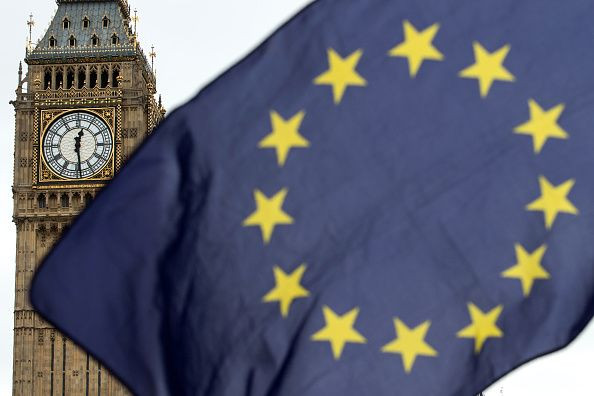Brexit Might Be Trouble For UK Space Companies Working With ESA

British space companies might have a hard time doing business once the United Kingdom officially leaves the European Union. Jan Wörner, director general of the European Space Agency, said if those companies want to participate in projects the EU is funding after Brexit, they might have to create subsidiaries in member countries.
It could take another couple of years for the full terms of Brexit to be set and Britain’s withdrawal to begin officially, so it appears the companies have until 2019 to get their ducks in a row. After that, Wörner told the Financial Times Wednesday, “We have a tremendous problem with Brexit because it means that U.K. companies ... are not eligible to have a contract directly.”
Read: Stephen Hawking Says If We Don’t Leave Earth Now, We’ll All Die
The subsidiaries could be a short-term solution to the problem, keeping the companies in the fold until other arrangements are made.
Being shut out of EU-funded ESA programs could be detrimental to the countries that is so focused skyward. The U.K. Space Conference just concluded in Manchester, England, where Wörner himself was one of the speakers, notably telling the Times that space colonies, including on Mars and the moon, would be terrible places to live. The Financial Times said Britain wants to control 10 percent of the space market worldwide within the next 13 years.
That would be no easy task as competition in the space industry is getting tighter all the time. Just recently private company Rocket Lab, based in the U.S. but run by a New Zealander, geared up for its first rocket launch from the island country in the South Pacific Ocean and announced its plans to bring the kiwi nation into the space race, with the eventual goal of sending a satellite into Earth orbit weekly.
At the conference, Wörner called for British and EU officials to work together and come to an agreement on how to move forward with initiatives like the Earth-observing satellites in the Copernicus program, which are run through ESA but funded by the EU and thus limited to partners from member states.
The ESA head told the Financial Times that to stay in the programs, the Brits might have to increase the amount of funding they contribute to the collaborations.
“I am ready to help the U.K. space industry to overcome these problems as far as my power reaches,” he said. “I am not commissioner of the EU, and am not responsible for what is done in Brussels, but we would love the U.K. to continue to be a member.”
Read: New Zealand Wants To Launch Rockets Once A Week
Another EU-funded project at stake is Galileo, a network of global navigation satellites ESA is launching.
Although the EU is involved in what ESA does, they operate independently — and each has members the other does not. Norway and Switzerland are members of the space agency but not part of the EU while a few EU nations are not members of ESA or simply have cooperative agreements with the space agency.
© Copyright IBTimes 2024. All rights reserved.




















